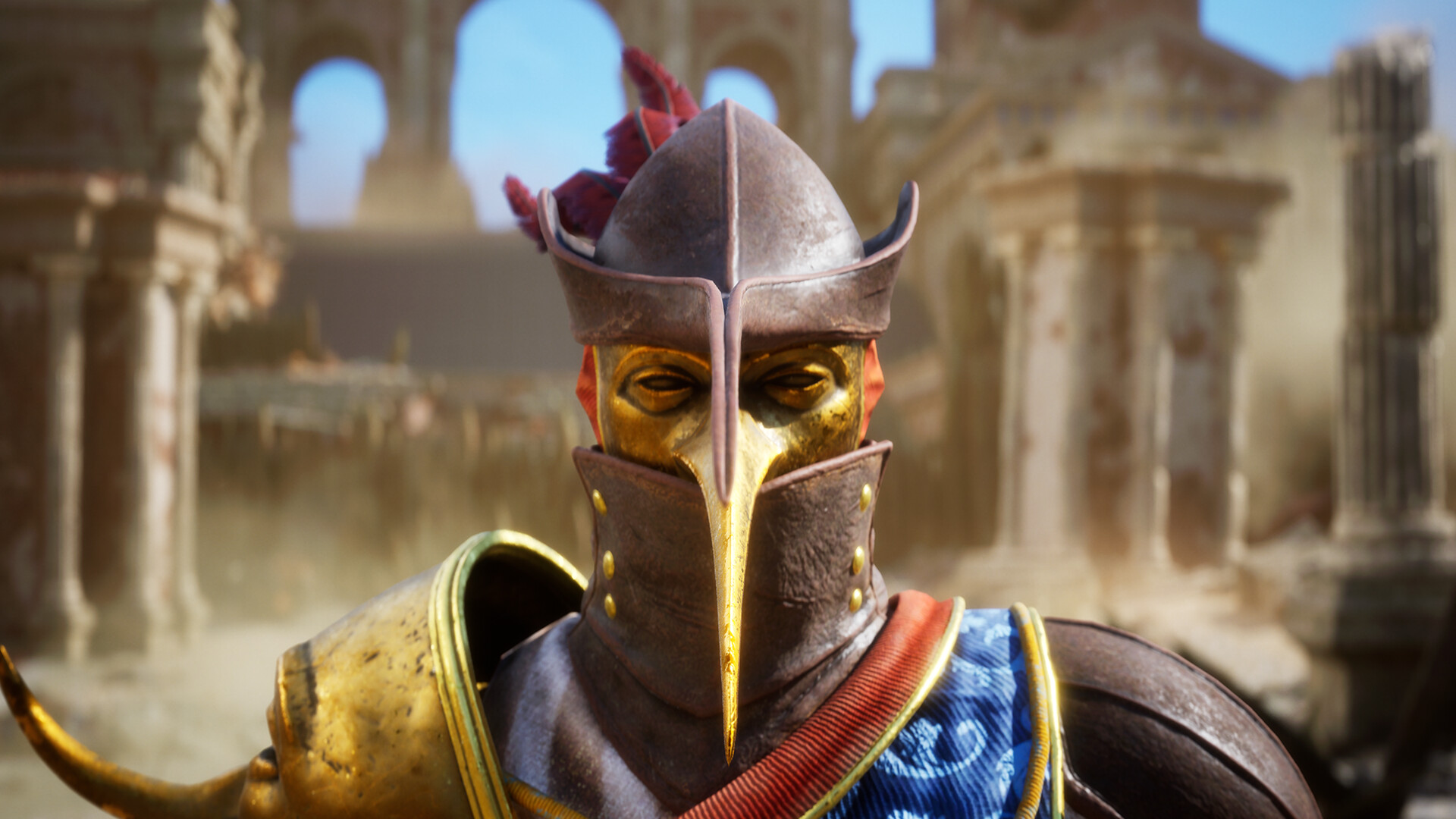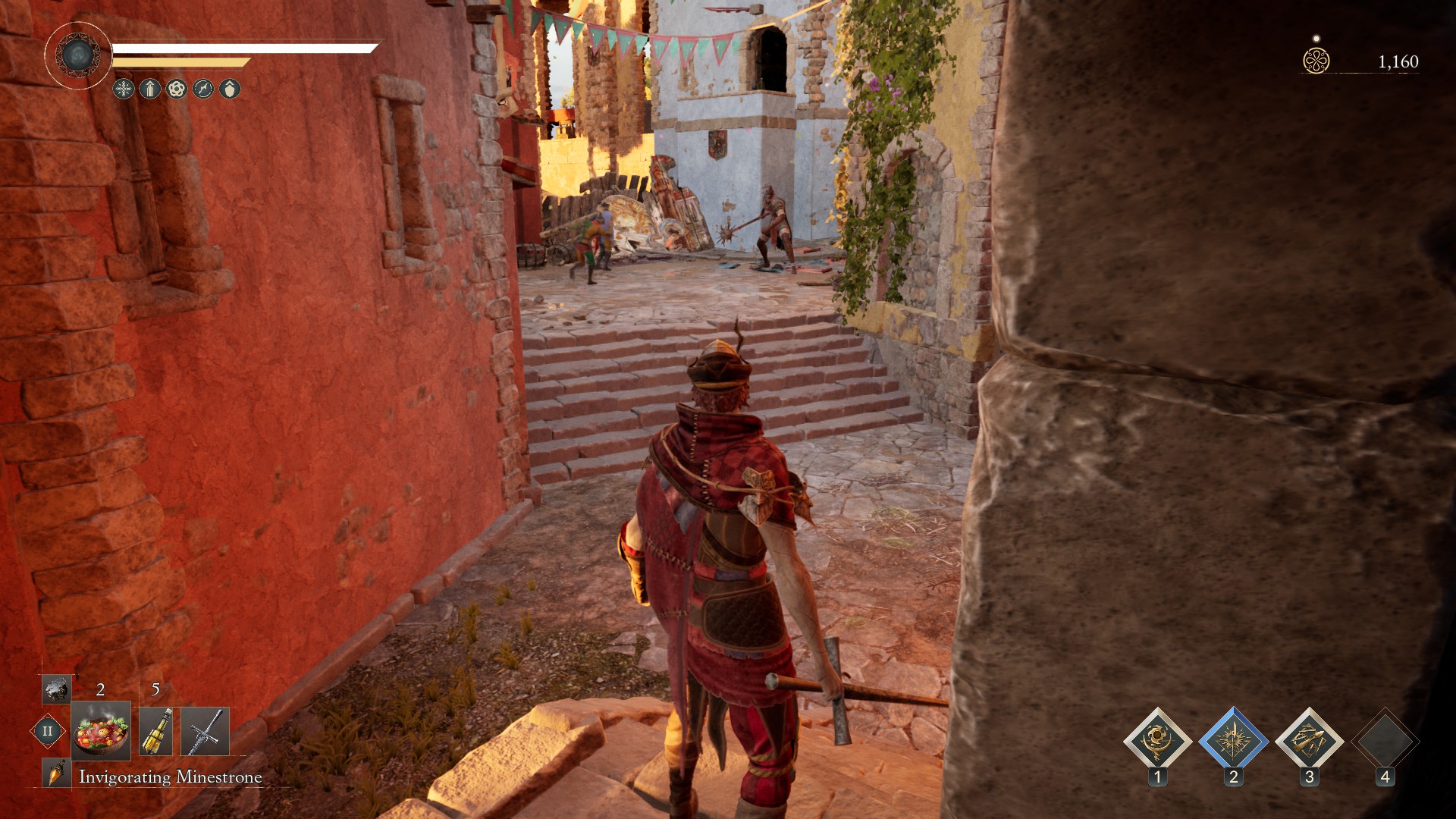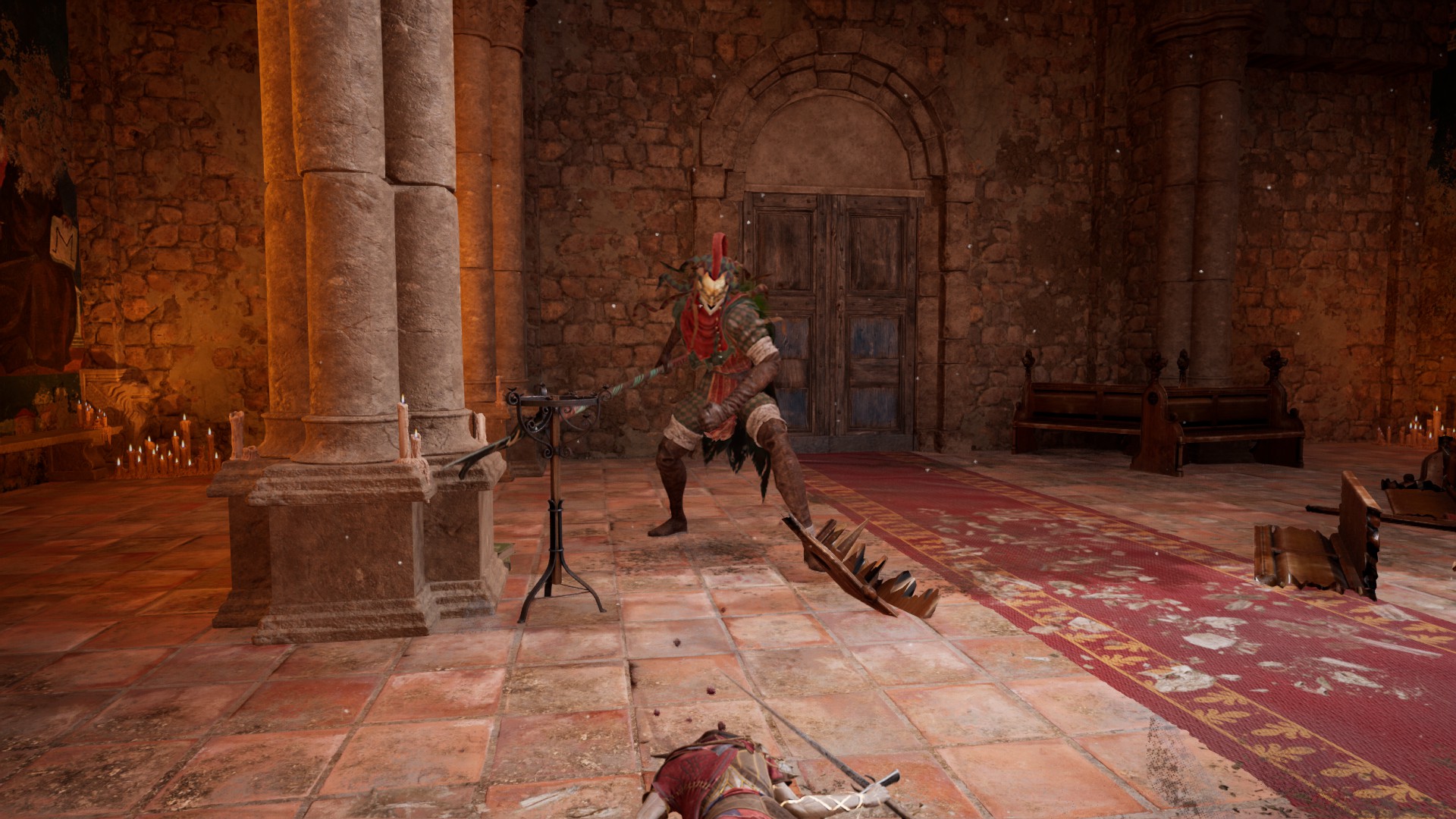The newest soulslike on the block, Enotria: The Last Song needs a bit more rehearsal time

The demo shows a lot of promise, but also highlights some points of concern.
For better and for worse, Enotria: The Last Song is an ungainly marriage of Dark Souls 2 and the classics wing of a history museum. Enotria's demo echoes the eerie beginnings of FromSoftware's much-maligned sequel, but the interweaving of Mediterranean folklore, history, and theater lends it a bizarre and unsettling atmosphere that has it stand out from other soulslikes.
From what I gathered, Enotria's world is as rooted in ancient and early-modern human history as it is fantasy and folklore. If you're at all versed in classics like the Aenid or the Divine Comedy, you'll recognize familiar names of epic heroes and ancient empires, distorted by a deranged, collapsing mind. I genuinely loved the atmosphere of these demo areas, with the sun-bleached stonework and distant ambiance of waves lapping at broken ships resting on the coastline tempering my frustration with Enotria's janky combat.
While pleasant to look at, Enotria isn't nearly as fun to trudge through. Movement feels like a binary decision—you're either running at full tilt, or you're standing still. (Or you're dodging.) There's also a hint of delay to every action, like your character is looking down at their feet to make sure they aren't about to trip over something. Paired with some bizarre attack animations where enemies throw out a wild string of attacks with legs locked perpendicular, I felt like I was taking hits from attacks that I should have been able to parry or avoid.
Those issues with responsiveness and clarity are compounded by some lackluster environmental design, with Enotria's backstreets and alcoves rarely being laid out in a way that complemented combat encounters. I often resorted to trial and error, barreling into an area, making a mental note of which janky pieces of geometry will get my character stuck and which walls the camera would get hung up on, and then face-tanking my foe.
Compared to Elden Ring, where enemies strike rhythmically, leveraging their whole body weight, or Lies of P, where even the most stiff-legged puppets will churn gears and sputter smoke and sparks while winding up a swing, Enotria's dudes in silk and rag feel nigh-unreadable, and even a generous parry window doesn't help much. While I was still able to face-tank most enemies, even a drummer's sense of rhythm couldn't help me make sense of certain attack timings. Frame stutter, screen-tearing, and a wonky camera that likes to get stuck on walls all compound to make fights where you're on the backfoot go from challenging to frustrating. Enotria is a reminder how important the mundane technical aspects of a soulslike game are.
Likewise, Enotria tries a bit too hard to reinvent the wheel when it comes to stats and jargon, at the expense of familiarity. Enotria presents a dizzying array of statistics, modifiers, and variables, all with confusing names like Vis, Ennui, Succor, and so on. There are four elements you have control over, each with an equally confusing name and, at least within the bounds of the demo, no real benefit to being conscious of. I'm so-so on Enotria's RPG mechanics as they are here in the demo—most enemies won't survive your assaults long enough to trigger any active status effects, and that brain power is best reserved for making the most out of your inconsistent parries and dodges.

One of Enotria's most intriguing features is the ability to swap between favorite loadouts near instantly. It's not something I did often, but I'm actually pretty excited about a soulslike progression system that provides the resources and mechanics to make use of multiple builds at once.
In its current incarnation, though, combat is altogether unsatisfying, especially because the depth of Enotria's skill and leveling system fall away in the face of such frustrating encounters. Hair-raising ambushes in confined spaces are some of my personal highlights from the Souls series, so I'm hopeful that developers Jyamma Games tweak these encounters to strike a balance between tough and fair.

In spite of these gameplay grievances, I came to appreciate Enotria's grim sense of humor, especially how interwoven it is with gameplay. There's a poison rapier in the second area, just before the demo's ending. It deals great damage, handles pretty well, and, you guessed it, deals poison damage to your opponents. But also to you. I could not for the life of me discern where this poison damage was coming from, and I became convinced the demo's boss was radiating some kind of invisible poison field. After an embarrassing number of attempts, I finally read the description for this dumb rapier and learned that the blade was made from mercury and its cursed status is stemmed from everyone who ever touched the thing getting mercury poisoning. That's hysterical, and I hope Enotria's full release doesn't shy away from punking the player like that—a soulslike tradition.
Enotria: The Last Song has a lot of promise. Immaculate presentation, a great sense of humor, and a fantastic premise that chops and screws Italian folklore into something unnatural and alien are let down by stiff combat, awkward level and encounter design, and a slew of unpolished mechanics. With only a few months before its September 19 release date, it'll take a lot of work to bring it up to the level of its contemporaries.
